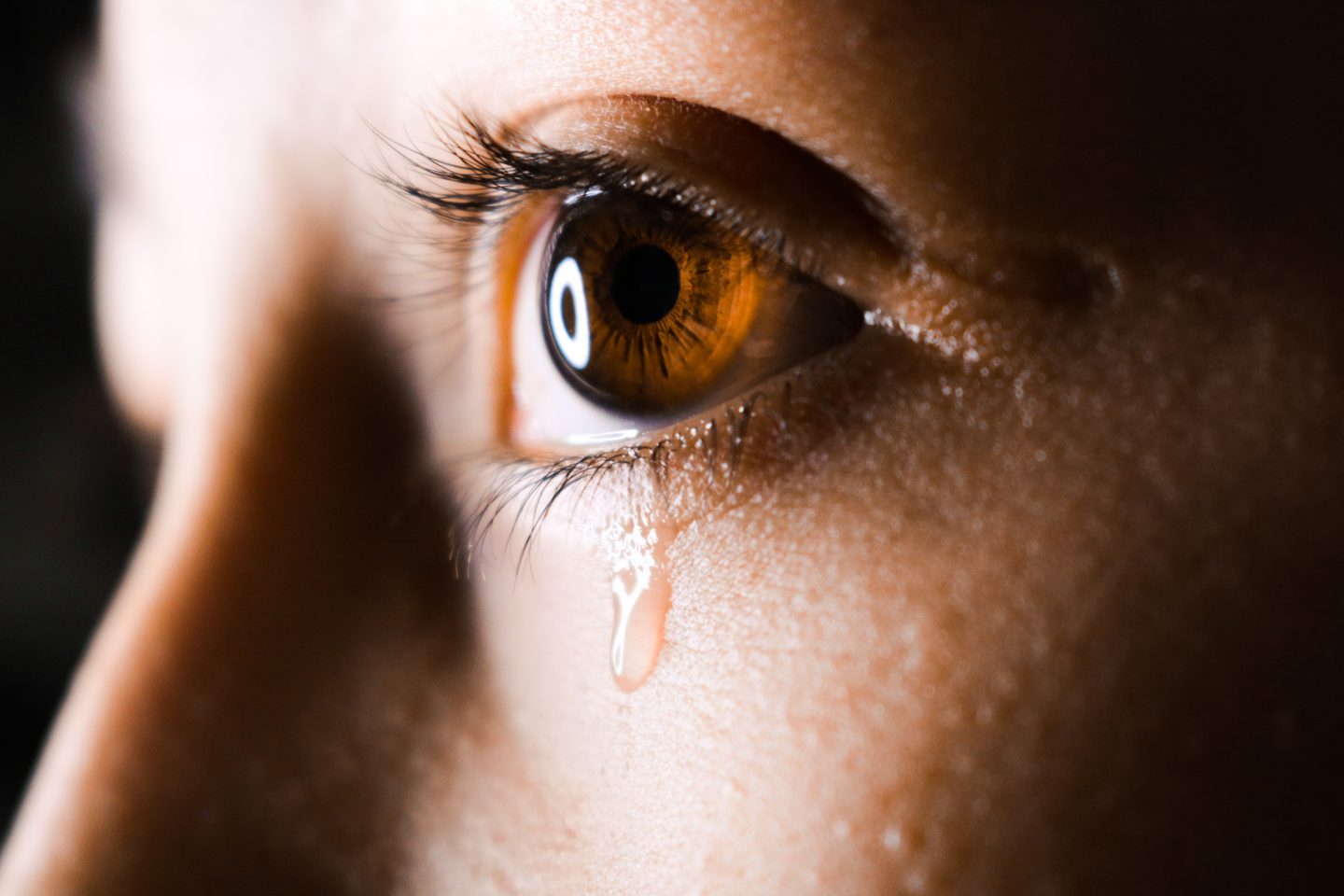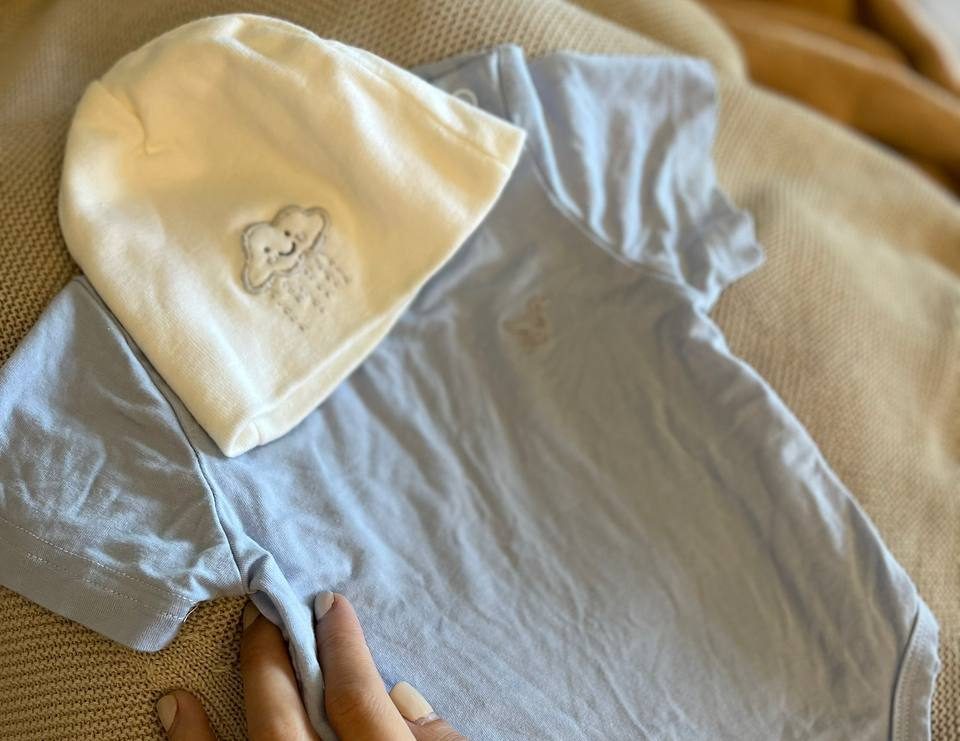
Photo by Aliyah Jamous on Unsplash.
Five year-old Samantha was the victim of a cruel and tragic murder, and her own tears were the evidence that sealed the case against her abductor. “She solved the crime,” said her young mother. “She was her own hero.”
DNA in the form of teardrops was found on the passenger-side door of the killer’s car, irrevocably making their mark on the crime scene and everyone who imagines them.
It is impossible to hear stories like this, of heinous murders, of calculated school shootings, without retreating to the deepest whys and hows of life. The abrupt ending to these lives is another wretched symptom of a sick and desperate world.
The problem of evil is a problem that confronts us, sometimes jarringly. The problem of pain is only intensified by the personal nature of our experience with it.
A language of pain
The first time I heard Samantha’s story, my numbed mind was startled by this property of tears. I had no idea that our tears were so personally our own.
In the pains and joys that cause us to weep and to mourn, we leave marks far more intimate than I ever realised.
Samantha’s tears solved the case because there were none others like hers. They were unique to the eyes they came from, intricately a part of Samantha herself.
In the pains and joys that cause us to weep and to mourn, we leave marks far more intimate than I ever realised. We shed evidence of our own makeup, leaving behind a complex, yet humble message: I was here, and my pain was real.
There are a lot of really bad and unhelpful things that people say in the face of tragedy and to those who mourn.
For me this brings new meaning to the wisdom of being silent with the grief-stricken, sharing tears instead of advice.
Let’s talk over sambal belacan: Pray, tell, do you believe in God?
Our watery eyes don’t go unnoticed
There is something deeply necessary in the Christian hope that pain will one day be removed and tears will be no more.
Our pain is not haphazardly viewed by the One who made tear ducts able to spill over with grief and anguish.
We are rightly comforted by the hope of a God who will wipe away every tear from the eyes of the weeping and the promise that there will one day be “no more death or mourning or crying or pain” (Revelation 21:4).
But perhaps there is something deeply necessary about a God who has marked our tears so specifically even now, declaring that our pain is far from a generic or empty occurrence.
There is a line uttered by the psalmist that was comforting to my grandmother through many years of loss and life. To God the psalmist confesses: “You have kept count of my tossings, put my tears in your bottle” (Psalm 56:8).
Tear-bottles were small urns of glass or pottery created to collect the tears of mourners at the funerals of loved ones. They were placed in the sepulchres at Rome and in Palestine where bodies were laid to rest.
More than a parent wiping eyes and collecting tears, God has shed tears of his own.
In some ancient tombs these bottles are found in great numbers, collecting tears that were shed with great meaning to the ones unique to them.
How assuring to know that our pain is not haphazardly viewed by the One who made tear ducts able to spill over with grief and anguish. God keeps count of our sorrowful struggling, each tear recorded and collected as pain steeped with the life of the one who wept it.
Like a parent grieving at a child’s wound, God knows our laments more intimately than we realise.
The God who weeps with us
But also more than a parent wiping eyes and collecting tears, God has shed tears of his own, taking on the limitations and sufferings of creation personally, declaring in body that embodiment is something God takes very seriously.
Every tear is marked with the intricacies of a Creator, every lament collected in His bottle until the day when tears will be no more.
In her book Creed or Chaos, Dorothy Sayers writes:
“For whatever reason God chose to make man as he is – limited and suffering and subject to sorrows and death – He had the honesty and the courage to take His own medicine …
“He has Himself gone through the whole of human experience, from the trivial irritations of family life and the cramping restrictions of hard work and lack of money to the worst horrors of pain and humiliation, defeat, despair and death. When He was a man, He played the man. He was born in poverty and died in disgrace and thought it well worthwhile.”
I know of no equal comfort in the midst of life’s sorrows, no other answer within the problem of pain and evil. God has sent as unique and personal a saviour as the very tears we shed crying out for answers and consolation.
Every tear is marked with the intricacies of a Creator, every cry heard by one who wept at the grave of Lazarus, every lament collected in his bottle until the day when tears will be no more.
This article was first published on A Slice of Infinity, a ministry of Ravi Zacharias International Ministries, and has been republished with permission.
“I am moved by the tears of your wife. I will heal you,” Jesus told this dying man
Reflection and Discussion
- God sees and knows our pain. The grief and lamentations of those whose tears come more privately and less easily are not of any lesser weight. What pain do you need to release to Him today?
- Consider how Jesus Christ came embodied as a man who went through “the worst horrors of pain and humiliation, defeat, despair and death”. Give thanks for the mercies and grace of God.
- “Jesus wept.” Do you know the tears that God sheds for the world – the poor, needy and broken? And will we join Him in that pain?
We are an independent, non-profit organisation that relies on the generosity of our readers, such as yourself, to continue serving the kingdom. Every dollar donated goes directly back into our editorial coverage.
Would you consider partnering with us in our kingdom work by supporting us financially, either as a one-off donation, or a recurring pledge?
Support Salt&Light




